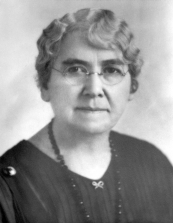(March 8, 2012)
Today is when we recognize and celebrate women’s economic, political, and social achievements. In Canada we often forget that until 1929 women were not even considered “persons” under our laws.
Too few remember how women overcame this abomination in our legal system. It all started with the grain farmers of western Canada. For over 30 years, since the 1890s they had been working to establish cooperative grain elevators and a Wheat Board to give them fair prices for their grain.
Women played key roles in the Territorial Grain Growers Associations which later grew into the Alberta, Saskatchewan, and Manitoba Wheat Pools. From the start, women were treated as valued members with equal voices and votes.
In 1917, Louise McKinney was elected from the rural district of Claresholm, Alberta to the Provincial Legislature. She was the first woman elected to the Alberta Legislature and the first woman in the British Empire to be elected to a legislature. In 1921, her neighbour Irene Parlby, a strong member of the Alberta Wheat Pool, was elected to the Alberta Legislature for the United Farmers of Alberta. Parlby become the first woman cabinet minister in Alberta and only the second such woman in the British Empire. Both women shared a determination to make Canadian law reflect the gender equality already practiced in the farm community and its cooperative organizations that wielded so much economic power.
McKinney and Parlby became part of the “Famous Five,” a group of women who challenged their exclusion from “personhood” under Canadian law. With the support of western Canada’s grain farmers and their Wheat Pools they were successful in doing so when the British Privy Council (then the equivalent of our Supreme Court today) ruled that women were “persons” under the law and had all the rights and duties of full citizenship.
Statues of these courageous women may be found in downtown Calgary, where the Wheat Pools started, and next to the Parliament Buildings in Ottawa. It was the grain farmers of western Canada who contributed to their success and now grain farmers are again fighting to keep democracy and rule of law alive in Canada.
editor’s note: the Class Action law suit is now before the Courts in Manitoba (March 8, 2018)



